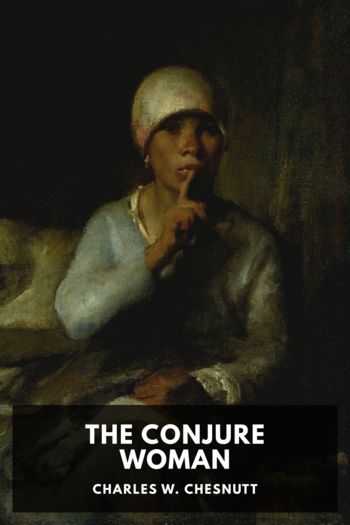The Lives of the Caesars, Suetonius [best book club books for discussion .TXT] 📗

- Author: Suetonius
Book online «The Lives of the Caesars, Suetonius [best book club books for discussion .TXT] 📗». Author Suetonius
When quaestor, he pronounced the customary orations from the rostra in praise of his aunt Julia and his wife Cornelia, who had both died. And in the eulogy of his aunt he spoke in the following terms of her paternal and maternal ancestry and that of his own father: “The family of my aunt Julia is descended by her mother from the kings, and on her father’s side is akin to the immortal Gods; for the Marcii Reges (her mother’s family name) go back to Ancus Marcius, and the Julii, the family of which ours is a branch, to Venus. Our stock therefore has at once the sanctity of kings, whose power is supreme among mortal men, and the claim to reverence which attaches to the Gods, who hold sway over kings themselves.”
In place of Cornelia he took to wife Pompeia, daughter of Quintus Pompeius and granddaughter of Lucius Sulla. But he afterward divorced her, suspecting her of adultery with Publius Clodius; and in fact the report that Clodius had gained access to her in woman’s garb during a public religious ceremony5 was so persistent, that the senate decreed that the pollution of the sacred rites be judicially investigated.
As quaestor it fell to his lot to serve in Further Spain. When he was there, while making the circuit of the assize-towns, to hold court under commission from the praetor, he came to Gades, and noticing a statue of Alexander the Great in the temple of Hercules, he heaved a sigh, and as if out of patience with his own incapacity in having as yet done nothing noteworthy at a time of life when Alexander had already brought the world to his feet, he straightway asked for his discharge, to grasp the first opportunity for greater enterprises at Rome. Furthermore, when he was dismayed by a dream the following night (for he thought that he had offered violence to his mother) the soothsayers inspired him with high hopes by their interpretation, which was: that he was destined to rule the world, since the mother whom he had seen in his power was none other than the earth, which is regarded as the common parent of all mankind.
Departing therefore before his term was over, he went to the Latin colonies which were in a state of unrest and meditating a demand for citizenship;6 and he might have spurred them on to some rash act, had not the consuls, in anticipation of that very danger, detained there for a time the legions which had been enrolled for service in Cilicia.
For all that he presently made a more daring attempt at Rome; for a few days before he entered upon his aedileship he was suspected of having made a conspiracy with Marcus Crassus, an ex-consul, and likewise with Publius Sulla and Lucius Autronius, who, after their election to the consulship, had been found guilty of corrupt practices. The design was to set upon the senate at the opening of the year and put to the sword as many as they thought good; then Crassus was to usurp the dictatorship, naming Caesar as his master of horse, and when they had organized the state according to their pleasure, the consulship was to be restored to Sulla and Autronius. This plot is mentioned by Tanusius Geminus in his History, by Marcus Bibulus in his edicts, and by Gaius Curio the elder in his speeches. Cicero too seems to hint at it in a letter to Axius, where he says that Caesar in his consulship established the despotism which he had had in mind when he was aedile. Tanusius adds that Crassus, either conscience-stricken or moved by fear, did not appear on the day appointed for the massacre, and that therefore Caesar did not give the signal which it had been arranged that he should give; and Curio says that the arrangement was that Caesar should let his toga fall from his shoulder. Not only Curio, but Marcus Actorius Naso as well declare that Caesar made another plot with Gnaeus Piso, a young man to whom the province of Spain had been assigned unasked and out of the regular order, because he was suspected of political intrigues at Rome; that they agreed to rise in revolt at the same time, Piso abroad and Caesar at Rome, aided by the Ambrani and the peoples beyond the Po; but that Piso’s death brought both their designs to naught.
When aedile, Caesar decorated7 not only the Comitium and the Forum with its adjacent basilicas, but the Capitol as well, building temporary colonnades for the display of a part of his material. He exhibited combats with wild beasts and stage-plays too, both with his colleague and independently. The result was that Caesar alone took all the credit even for what they spent in common, and his colleague Marcus Bibulus openly said that his was the fate of Pollux: “For,” said he, “just as the temple erected in the Forum to the twin brethren, bears only the name of Castor, so the joint liberality of Caesar and myself is credited to Caesar alone.”
Caesar gave a gladiatorial show besides, but with somewhat fewer pairs of combatants than he had purposed; for the huge band which he assembled from all quarters so terrified his opponents, that a bill was passed limiting the number of gladiators which anyone was to be allowed to keep in the city.
Having won the goodwill of the masses, Caesar made an attempt through some of the tribunes to have the charge of Egypt given him by a decree of the commons, seizing the opportunity to





Comments (0)